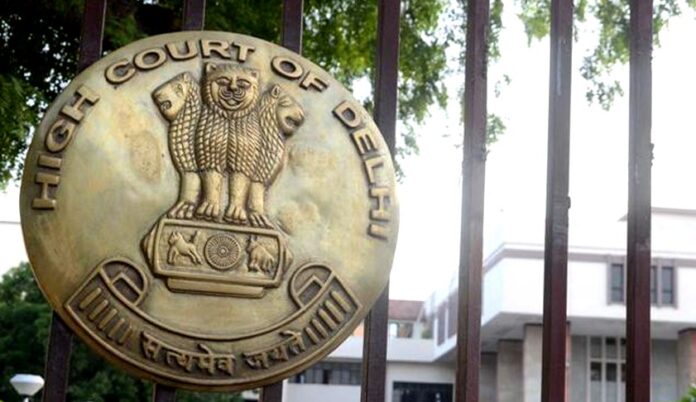On Monday, the Delhi High Court affirmed the constitutionality of the National Anti-Profiteering Authority (NAA) and the anti-profiteering provisions of the Central Goods and Services Tax Act. Section 171 of the Central Goods and Services Tax Act, 2017 and Rules 122, 124, 126, 127, 129, 133, and 134 of the Central Goods and Services Tax Rules, 2017 were affirmed by a Division Bench made up of Acting Chief Justice Manmohan and Justice Dinesh Kumar Sharma.
The Rules upheld by the Court deal with the NAA’s constitution, the appointment of its chairman and members, as well as its authority to determine methodology, procedure, and duties. Section 171 of the CGST Act mandates that any reduction in the rate of tax on any supply of goods or services must be passed on as a commensurate reduction in price to consumers.
In a decision that took up more than 140 pages, the Court determined that Section 171 of the CGST Act, which stipulates that any decrease in the tax rate on any supply of goods or services must be passed on to consumers as a corresponding decrease in price and establishes the NAA, falls under the constitutionally granted legislative authority of the parliament under Article 246A. According to the bench, Section 171 does not assign any necessary legislative purpose and does not serve as a tool for price fixing. Instead, it lays out a clear legislative policy.
Since Section 171 of the Act, 2017 is not a mechanism for price-fixing, it does not contravene Article 19(1)(g) of the Indian Constitution. The knowledgeable solicitors representing the respondents correctly noted that Section 171 of the Act, 2017 only addresses the indirect tax portion of the cost of goods and services; it has no bearing on suppliers’ autonomy to set their own prices while taking pertinent commercial and economic factors into account. The Court held that it agrees with the learned Amicus Curiae that the only purpose of Section 171 of the Act, 2017 is to guarantee that the recipient receives the subsequent benefit of the government’s lowering of the tax rate.
The Court denied the applications submitted by more than a hundred enterprises engaged in a variety of industries, including real estate, fast-moving consumer goods (FMCG), and hotels. These businesses included Whirlpool, Patanjali, Philips, Gillette, Nestle India, and Emaar MGF, among others. The Court stated that although it is probable that there would be instances of the anti-profiteering mechanism’s arbitrary power being used, the appropriate course of action is to set aside such orders based on the merits of the case.
The bench decided that the law giving the concerned authority this power would not be overturned in these situations; rather, the improper use of the power would. The Court addressed the arguments put forth by the petitioner corporations in addition to rejecting the petitions. The following lists the Bench’s conclusions and findings regarding these matters. It is impossible to establish a precise, standardised technique or mathematical formula to identify profiteering. The legislator has the authority to determine how the benefit will be distributed to the customers.
To be fair, the CGST Act of 2017 does not specify a deadline for when a price drop must be made. The duty under Section 171 is not covered by Section 64A of the Sale of Goods Act. One cannot invalidate a statutory provision [Section 171 CGST Act] based on the potential for misuse. It would be contrary to the purpose and intent of the CGST Act, 2017 to compare taxes imposed after its introduction with a variety of separate indirect taxes that were in effect before the Act’s implementation.
An appeal is a legal construct created by statute; there is no inherent right to file one. A statute cannot be deemed unconstitutional just because the legislators decided not to include a right of appeal against an NAA order. In any event, judicial review is available for NAA judgements. The NAA does not require judicial members. A statutory provision [Section 171 of the CGST Act] cannot be invalidated because of the possibility of misuse. Comparing taxes imposed after the CGST Act, 2017 with several different indirect taxes that were in place before the Act’s implementation would be against the Act’s goal and objective.
There is no innate entitlement to submit an appeal; rather, it is a legal construct established by statute. Legislators’ decisions to omit a right of appeal against an NAA order do not render a bill invalid. In any case, decisions made by the NAA may be subject to judicial scrutiny. Membership in the NAA is not required for judges. The statute is not exceeded by an investigation that goes beyond the parameters of the complaint. The CGST Act’s Section 171 is worded broadly and does not restrict the scope of examination to the products and services that are the subject of a complaint.
The Court also expressed gratitude to Amicus Curiae Amar Dave and advocates V Lakshmikumaran and Zoheb Hossain for their assistance, noting that “they filed not only multiple written submissions but also ensured that hearing in the present batch of matters (exceeding 100 cases) was conducted in an orderly and proper manner.”






